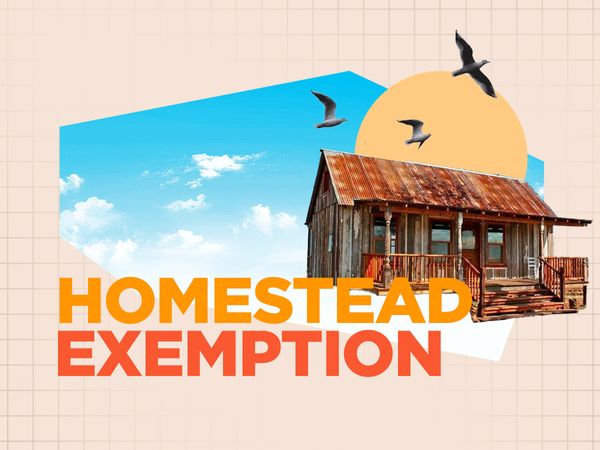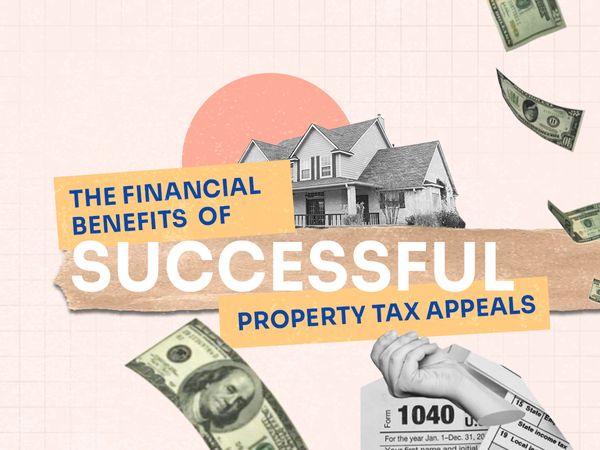-
Homestead exemption could save you significant money on your property taxes. In this guide, we explain what homestead exemption is, the benefits, and how to apply for it.
Whether you own a heritage home or a contemporary residence, the joy of owning your home is unparalleled. Unfortunately, this joy is usually accompanied by paperwork, taxes, and maintenance, which no one likes to talk about.
Take a homestead owner, for example. By listing your property as a homestead in Texas, you can avail the benefits of a tax exemption. However, figuring out the real cost of your property, and its projected value in your county, putting together the documentation, and then protesting these taxes can exhaust anyone.
At Bezit, we put together a guide on homestead exemption so that you can enjoy a relaxing drink on your porch, without worrying about the taxes you had to pay for that porch.
By the end of this easy-to-follow guide, you’ll have a comprehensive understanding of how to maximize your homestead exemption benefits and ensure that you are taking full advantage of this opportunity.
Understanding Texas Homestead Exemption
What is a Residence Homestead?
A residence homestead, or just homestead, is the main place of residence of the owner, where they are currently living and occupying the property. This property, if listed as a homestead, is eligible for exemption. This includes a manufactured home on a rented lot for up to 20 acres if you own the home and use it as your residence. Manufactured homes must meet additional requirements for a "Statement of Ownership and Location”.
What is Homestead Exemption in Texas?
Texas homestead exemption is a legal provision that allows homeowners to declare a portion of their property as their homestead. With this declaration, you can avail certain benefits and protections, such as reduced property taxes and protection against forced sale to satisfy debts, thus reducing your overall property tax liability.
Essentially, when you list a property as a homestead, it’s a means to secure and stabilize your primary residence. It ensures that you are not burdened with excessive property taxes that either cause debts or the potential sale of your home.
It’s important to remember that homestead exemption is not just a legal provision, but a fundamental right on your primary residence. It promotes homeownership and encourages individuals to invest in their communities. It allows families to establish roots and build a strong foundation for future generations.
Counties are also required to offer a $3,000 exemption if the county collects farm-to-market roads or flood control taxes.
Homestead exemption laws differ among counties. As a rule of thumb, always check for specific laws that apply to your county when applying for exemption.
To know how much your home is valued at and the tax that could be saved with a homestead exemption, check this free tax calculator.

Calculate your tax savings with Homestead Exemption
Check the potential savings for your address. No signup required.
Eligibility Criteria for Homestead Exemption in Texas
In this section, we will dive deeper into what it takes to qualify for a homestead exemption in Texas.
As per the website of the Comptroller of Texas, the following definitions qualify as a homestead owner:
The owner must have an ownership interest in the property and occupy the property as the owner’s principal residence.
- A residence owned by an individual through an interest in a qualifying beneficial trust and occupied by a trustor or beneficiary of the trust.
- An owner’s surviving spouse who has a life estate in a residence may also qualify the property for a residence homestead exemption.
Ownership Requirements
As per texaslawhelp.org, to be eligible for homestead exemption in Texas, you have to:
- Own your home (partial ownership counts);
- The home is your principal residence;
- Possess a Texas driver’s license or Texas-issued identification certificate (any identification must match the address of your primary residence).
If you qualify for a general homestead exemption, you may also qualify for these additional exemptions:
- Over 65 Exemptions: This applies to homeowners who are 65 or older. If you are aged 65+ at the time of your death and your surviving spouse is 55 or older then they will receive your over-65 exemption.
- Disability: This exemption is for homeowners (not their children) living with a disability who qualify for Social Security Disability benefits. If you have a disability and are a senior (65+), you can only take one of these exemptions.
- Veterans: This exemption is for the spouses and survivors of disabled veterans, as well as the spouses and survivors of those servicemen and women who lose their lives in the line of duty. The veteran exemption amount is determined by the percentage of service-connected disability.
- Inherited Property: In 2020, a landmark ruling enabled heir property owners to take 100% advantage of homestead exemptions, even as co-owners of the property in question. Prior to this ruling, heirs could only benefit from a partial homestead exemption if they were not the sole heir to the property.
You cannot apply for a homestead exemption:
- If you are a non-owner occupant, such as a tenant;
- If the property is used for commercial purposes;
- If you own multiple properties.
If you own multiple properties, only one can be claimed as your homestead, and it needs to be your primary place of residence.
Occupancy Requirements
Along with ownership, you must also meet specific occupancy requirements to qualify for homestead exemption in Texas. These requirements ensure that the property is indeed your principal place of residence.
In general, to meet the occupancy requirements, you must:
- have established a physical presence at the residence before January 1st of the tax year. This means that you must have been living in the property as your primary residence before the start of the tax year;
- continue to occupy the property as your primary residence throughout the tax year. If you move out and the property is no longer your main place of residence, you may lose your eligibility for homestead exemption.
Application Deadlines
Possibly the most important thing to consider is keeping track of your application. Failing to submit your application on time can result in the loss of potential tax savings.
Generally, the deadline for submitting your application is April 30th of the tax year, so set reminders to ensure that you are well within the date and don’t miss the deadline. If you miss the initial deadline, you may still be able to apply for homestead exemption within one year of the delinquency date.
That said, always check with your local appraisal district or tax assessor's office to determine the specific deadlines and requirements for your area. Familiarize yourself with the specific rules and deadlines in your area to ensure a smooth application process.
The Benefits of Homestead Exemption
Now that we have established what a homestead exemption is, let's explore the specific advantages it offers to Texas homeowners.
Financial Advantages
One of the primary benefits of the homestead exemption is the potential for significant financial savings. By reducing the taxable value of your home, you lower your property tax bill, which can result in substantial long-term savings.
Imagine being able to allocate those saved funds towards other essential expenses, such as education, healthcare, or home improvements. Opting for homestead exemption empowers you to have more control over finances and make choices that will enhance your quality of life.
Protection from Creditors
With rising inflation and the general cost of living, sometimes you have to make hard financial decisions. This may even involve selling your beloved home. In the event of bankruptcy or certain legal judgments, the equity in your home that qualifies for exemption is shielded from creditors, helping you retain ownership of your primary residence.
Even when life feels like it’s crumbling, this protection ensures that homeowners have a safe haven to call their own. It acts as a safety shield that ensures a roof over your head without the fear of losing your most valuable asset.
Homes are meant to be safe spaces, and a homestead status keeps it that way.
Tax Reductions
A homestead allows you to save on your taxes, in addition to financial savings and protection from creditors. These reductions can include exemptions on school district taxes, county taxes, and even an additional exemption for homeowners over the age of 65.
When the burden of property taxes is reduced, you can use that extra money for other important needs. Whether it's investing in retirement savings, pursuing further education, or simply enjoying a well-deserved vacation, enjoy the freedom and flexibility to make choices that align with your personal goals while you save money with ongoing tax reductions.
Furthermore, if you’re over the age of 65, Texas property laws offer an additional homestead exemption for school district taxes and recognize the contributions and sacrifices made by our senior citizens. This additional exemption ensures they can enjoy their golden years and focus on leisure activities, including spending quality time with loved ones.
It is required by Texas Law for school districts to offer additional exemptions, namely a $10,000 residence homestead exemption to anyone aged 65 or older, or living with a disability. Each individual city, county, school district, and special district can decide on their homestead exemption for those who are 65+ or disabled, which may not be less than $3,000. In the case of a school district, any local exemption will be in addition to the aforementioned $10,000 exemption.
How to Apply for a Homestead Exemption in Texas
Applying for a homestead exemption in Texas can be a beneficial step towards reducing your property taxes and protecting your primary residence. The process may seem daunting at first, but with the right information and documentation, it can be a straightforward and rewarding experience.
Gathering Necessary Documentation
Before beginning your application, gather all the necessary documentation. This step is crucial to ensure a smooth and efficient application process. This includes proof of ownership, such as a warranty deed or a copy of the recorded contract. Additionally, you will need to provide proof of residency, which can be a driver's license or a utility bill showing your residential address.
It is important to note that the specific documentation required may vary slightly depending on the county in which your property is located. Therefore, contact your local appraisal district or visit their website to obtain a comprehensive list of the required documents.
Filling Out the Application
Once you have gathered all the required documentation, submit the homestead exemption application form. This form is typically available on the website of your local appraisal district, or you can get a copy at their office.
Provide detailed information about the property, including its address, legal description, and the names and ages of all individuals living on the property. Be specific and accurate and share up-to-date information to avoid any delays or complications in the application process.
Take your time to carefully review the application form and ensure that you have filled it out correctly. If you have any questions or concerns, don’t hesitate to reach out to the appraisal district for assistance. They are there to help you navigate through the process and provide guidance when needed.
Submitting Your Application
Typically, you will need to submit your application to the appraisal district in the county where your property is located. Always crosscheck the specific submission requirements of your county so that your application is received and processed on time.
Some counties may allow you to submit your application online, while others may require you to submit it in person or by mail. Be sure to adhere to the specified deadlines to avoid missing out on the potential homestead exemption benefits. Late applications may result in the delay of your exemption or even the denial of your application.
Once your application is submitted, it will be reviewed by the appraisal district to verify your eligibility and the accuracy of the information provided. This review process may take some time, so be patient and follow up with the appraisal district if necessary.
You don't have to reapply unless you receive an application from the chief appraiser or your qualifications change (for example, if you become disabled and therefore qualify for an additional exemption).
Common Mistakes to Avoid When Applying for Homestead Exemption
While applying for homestead exemption is a relatively straightforward process, here are some common mistakes that you should avoid.
Missing the Deadline
The filing deadline is April 30 of the tax year. Arguably the most crucial mistake to avoid is missing this application deadline. Each jurisdiction has a specific deadline by which you must submit your application. Failing to meet this deadline can result in the forfeiture of your homestead exemption benefits for that tax year. As per the Texas Comptroller's website, a late residence homestead exemption application can be filed up to two years after the delinquency date, which is usually Feb. 1.
Mark your calendar and be aware of the deadline. Set a reminder to submit your application well in advance, accounting for any potential delays or complications that may arise.
Incorrectly Filling Out the Application
Another common error is incorrectly filling out the application form. While the form may seem straightforward, take your time and ensure that all the information you provide is accurate and up to date.
Double-check your application so there are no potential delays or errors that may lead to rejection.
Frequently Asked Questions About Homestead Exemption in Texas
Now, let's address some common questions regarding homestead exemption.
The homestead exemption is a valuable benefit for homeowners in Texas, providing significant property tax savings. However, understanding the details and requirements of this exemption can sometimes be confusing.
To help clarify any uncertainties, here are the answers to some frequently asked questions:
Can I Apply for Homestead Exemption Online?
Yes, many counties in Texas allow homeowners to apply for homestead exemption online. This convenient option saves you time and effort by eliminating the need to visit the appraisal district office in person. You can easily access the online application form and submit the necessary documentation on your local appraisal district's website to claim your homestead exemption. While most districts offer online services, check with your local appraisal district to determine if this option is available in your area.
What Happens if I Sell My Home?
If you sell your home, notify the appraisal district, as this ensures that the appropriate adjustments will be made to your homestead exemption status. Depending on the timing of the sale, you may be eligible for a partial exemption for the portion of the year you owned the property. Provide the necessary documentation, such as the closing statement or deed, to the appraisal district to support your claim.
Can I Have Homestead Exemption on Multiple Properties?
No, a homestead exemption can only be claimed on your primary residence. If you own multiple properties in Texas, you can only designate one property as your primary residence for the homestead exemption. Your primary residence is typically the property where you reside for the majority of the year and consider your permanent home.
Conclusion: Maximizing Your Homestead Exemption Benefits
In conclusion, understanding and taking advantage of homestead exemption can significantly benefit Texas homeowners. By reviewing your eligibility, staying up to date with tax laws, and filing your taxes, you can maximize your homestead exemption benefits for 2025.
If you have any further questions or concerns about the homestead exemption, you can reach out to us or your local appraisal district for personalized assistance and guidance.




